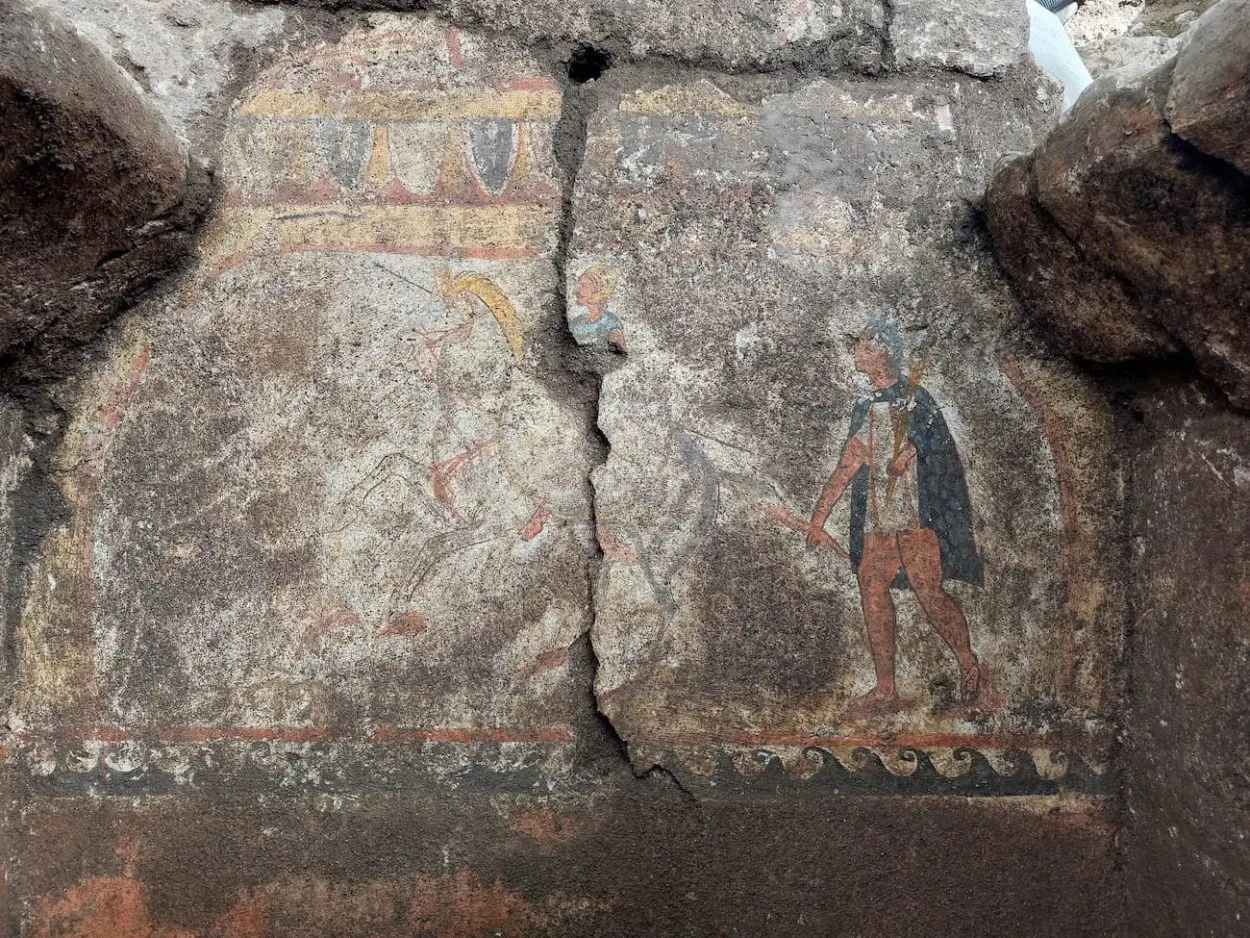Archaeologists have discovered a painted tomb depicting Italic warriors during excavations at the Pontecagnano necropolis.
The Pontecagnano necropolis is located adjacent to an ancient Villanovan settlement (early Etruscan), which emerged east of the present-day city of Salerno, Italy.
Previous excavations of the necropolis have yielded over 9,000 tombs and burials, dating from 3,000 BC during the Bronze Age, to the 3rd century AD in the Roman era.
In a press announcement by the Superintendence of Archaeology, fine arts, and landscape for the provinces of Salerno and Avellino, a team of archaeologists have excavated a painted tomb from the 4th century BC, following the initial discovery during construction works.
The tomb, designed number 10043, is lined with travertine blocks of stone and contains various imagery depicting scenes of Italic warriors. One of the warriors is shown riding a horse armed with a spear, while another warrior is cloaked and carrying what appears to be a club. The side walls are decorated with ornamental festoons and imagery of pomegranates.
The tomb belonged to a high-status individual, who was buried with a gold leaf crown, of which only several fragments have been persevered. The tomb was likely constructed during the Etruscan expansion into the Salerno region and southern Italy, which would later be annexed by Greek colonists.
According to the archaeologists, the discovery is a rarely in the wider necropolis, as only a handful of painted tombs from this period having previously been discovered.
Superintendence of Archaeology, fine arts, and landscape for the provinces of Salerno and Avellino





